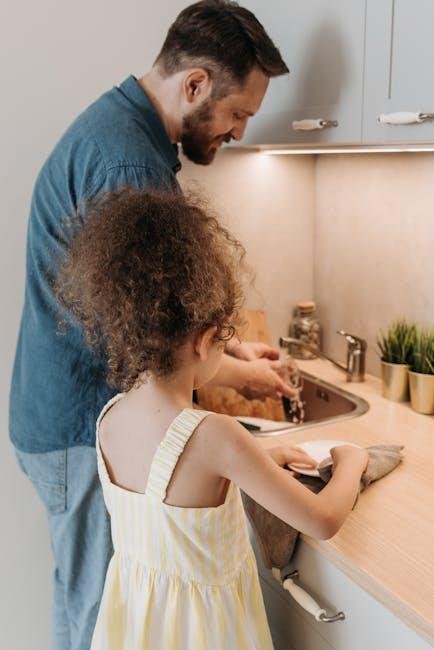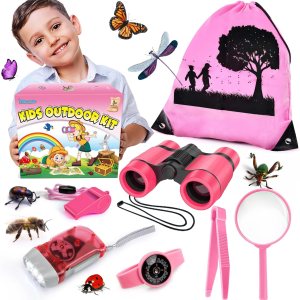Raising children is one of life’s greatest joys—and challenges. As parents and caregivers, we want our kids to grow up confident, capable, and kind. One essential life skill that often takes center stage on this journey is responsibility. But teaching responsibility isn’t about strict rules or harsh punishments; it’s about guiding little hearts and minds with patience, understanding, and care. In this article, we’ll explore gentle ways to help children embrace responsibility, nurturing their growth in a supportive and loving environment. Because when kids learn to take ownership of their actions with compassion, they don’t just grow up—they truly flourish.
Table of Contents
- Understanding the Importance of Responsibility in Childhood Development
- Creating a Supportive Environment That Encourages Accountability
- Practical Ways to Teach Responsibility Through Everyday Activities
- Balancing Guidance and Freedom to Foster Independent Growth
- Concluding Remarks
Understanding the Importance of Responsibility in Childhood Development
Responsibility serves as a cornerstone for a child’s emotional and social growth. When children are entrusted with age-appropriate tasks, they develop a sense of trust in their own capabilities. This foundation fosters independence and boosts self-esteem, empowering kids to navigate challenges with confidence. In fact, responsibility nurtures critical thinking and problem-solving skills, which are essential throughout life. Beyond academic achievement, learning to be responsible promotes empathy and respect, helping children understand the impact of their actions on others.
Instilling responsibility doesn’t mean overloading kids but rather creating supportive opportunities that encourage growth. Encourage your child to:
- Complete small daily chores with consistency
- Manage their personal belongings thoughtfully
- Make simple decisions and learn from outcomes
- Communicate openly about challenges and successes
By weaving these experiences with patience and positive reinforcement, children not only build skills but also develop a heartfelt sense of responsibility, making each learning moment meaningful and lasting.
Creating a Supportive Environment That Encourages Accountability
Building a space where children feel safe to take responsibility is essential for their growth. This means fostering open communication where mistakes are seen as learning opportunities rather than failures. Encouragement and positive reinforcement play a crucial role here—when kids know their efforts are recognized, they’re more motivated to own their choices. Creating routines that are predictable yet flexible helps children understand expectations without feeling overwhelmed. Remember, patience and empathy from caregivers lay the foundation of trust, making it easier for kids to embrace accountability willingly.
- Encourage honest dialogue about feelings and decisions.
- Model responsible behavior through your own actions.
- Offer consistent yet compassionate consequences.
- Celebrate small wins to build confidence.
In this nurturing setting, accountability becomes less about punishment and more about personal growth. Children learn to see their responsibilities as steps toward independence, supported by a community that values their progress. This balance between support and expectation creates a resilient mindset where kids are prepared not only to face challenges but also to learn from them thoughtfully and with care.
Practical Ways to Teach Responsibility Through Everyday Activities
Incorporating responsibility into daily routines helps children understand its importance without feeling overwhelmed. Encouraging them to manage small tasks, like organizing their toys or setting the table for meals, fosters a sense of accomplishment. These simple actions teach respect for their belongings and the shared environment. Additionally, involving kids in meal prep can be both fun and educational—letting them wash vegetables or measure ingredients cultivates patience and attention to detail in a natural, engaging way.
Creating consistent opportunities for responsibility also means allowing children to experience the outcome of their choices. For example, giving them the freedom to pick their clothes for school or pack their backpack encourages independence and critical thinking. Reinforcing this through gentle reminders or a reward system can boost their confidence and motivation. Consider integrating daily checklists or family chore charts to make responsibilities visible and tangible, turning everyday moments into valuable lessons on accountability and care.
Balancing Guidance and Freedom to Foster Independent Growth
Striking the right balance between offering direction and allowing space for autonomy is essential in nurturing a child’s confidence and decision-making skills. It’s about creating an environment where kids know they have a safety net but also the freedom to make choices. This delicate dance encourages them to explore, make mistakes, and learn without the fear of constant correction. When guidance is too rigid, it can stifle creativity; when freedom is unchecked, it can lead to confusion. By setting clear expectations while gently stepping back, parents foster a sense of ownership and responsibility in their children.
Effective strategies include:
- Providing age-appropriate tasks with room for problem-solving.
- Offering support that empowers rather than directs.
- Encouraging reflection on both successes and setbacks.
- Celebrating effort, not just outcomes.
Through this approach, children learn that mistakes are part of growth and that their actions have real consequences. This not only builds resilience but also instills a lifelong love for learning and personal development.
Concluding Remarks
As we navigate the beautiful journey of helping our children grow, teaching responsibility with kindness and understanding becomes a vital part of their development. Remember, it’s not about perfection or ticking off tasks, but about guiding little hearts to feel capable, valued, and empowered. When we approach responsibility with care, we’re not only helping kids build important skills—we’re nurturing their confidence and compassion, laying the foundation for a lifetime of growth. Here’s to mindful parenting, patient teaching, and watching our children flourish one thoughtful step at a time.
Related Products
-
Sale!
Gifts for Mom, Mother’s Day Gift Basket for Mom – …
Mom Original price was: $23.99.$12.99Current price is: $12.99. -
Sale!
Kids Explorer Kit & Bug Catcher Kit, Camping Gear …
Kids Original price was: $12.99.$11.99Current price is: $11.99. -
Ultra Performance 3 Pack Fleece Active Tech Jogger…
Clothing $37.99







